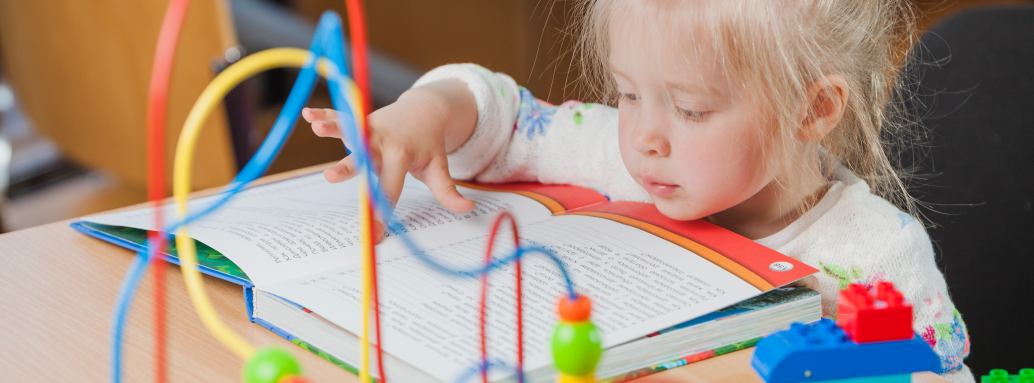Parental involvement in a child’s education is more than attending school meetings or helping with homework. It’s a deep commitment to fostering a learning environment that supports and encourages a child’s curiosity, confidence, and creativity. From boosting academic performance to fostering emotional growth, parents play a crucial role in shaping their child’s educational journey.
15 Parental Involvement to Shap your Child’s Education
1. Why Parental Involvement Matters in Education
Parental involvement is a powerful force in a child’s education. Research consistently shows that children whose parents are actively engaged in their schooling tend to perform better academically, socially, and emotionally. But involvement goes beyond academics—it’s about creating a supportive learning environment, nurturing curiosity, and fostering resilience.
2. Understanding Parental Involvement in Today’s Educational Landscape
The educational landscape has evolved, with more emphasis on collaboration between parents, educators, and students. Parental involvement today is about supporting not just academic achievements but also social skills, emotional intelligence, and problem-solving capabilities.
3. The Impact of Parental Engagement on Academic Achievement
Parents who engage with their child’s learning experience typically see higher academic performance, better attendance, and positive attitudes toward school. Children benefit from a steady support system that reinforces the importance of education and gives them the confidence to tackle academic challenges.
4. Social and Emotional Benefits of Parental Involvement
Parental involvement is linked to the development of strong social skills and emotional well-being in children. When parents actively participate, children feel more secure, which can lead to higher self-esteem, better coping mechanisms, and the ability to form healthy relationships with peers.
5. Types of Parental Involvement: Beyond Homework Help
Parental involvement isn’t limited to helping with homework. It includes creating an environment conducive to learning, encouraging reading, fostering curiosity, and showing interest in their child’s educational experiences. These actions create a solid foundation for lifelong learning.
6. Supporting Early Learning at Home
Early childhood is a crucial period for developing cognitive and social skills. Simple activities like reading, counting, or exploring nature together can significantly impact a child’s development. These experiences enrich their understanding of the world and make learning an enjoyable, shared experience.
7. Creating Positive Study Habits Early On
By establishing a routine and a designated study area, parents can help children form effective study habits. Consistent routines teach children discipline, responsibility, and time management—skills that are essential for future academic success.
8. Building a Partnership with Educators
Successful parental involvement often involves strong partnerships with educators. By aligning on goals and strategies, parents and teachers can create a consistent, supportive environment that reinforces learning objectives at home and in the classroom.
9. Effective Communication with Teachers and Schools
Open communication between parents and teachers is essential. This connection allows parents to stay informed about their child’s progress, understand academic expectations, and address any challenges or concerns proactively.
10. Role of Parent-Teacher Conferences and School Events
Parent-teacher conferences and school events provide valuable opportunities for parents to engage with their child’s education. Attending these events shows the child that their parents value education and are invested in their success.
11. Challenges of Parental Involvement in Education
Balancing involvement in a child’s education with other responsibilities can be challenging. Parents might face time constraints, lack of resources, or difficulty understanding the curriculum. Acknowledging these barriers is essential for finding practical solutions.
12. Balancing Work and Family Life with Educational Support
Parents with busy schedules can still engage with their child’s education in meaningful ways, like setting aside specific times for study or being present during key moments. Small, consistent actions can make a significant difference in a child’s educational experience.
13. Tips for Encouraging Parental Involvement in a Digital Age
The digital age offers tools that can help parents stay involved. From apps that track progress to online meetings with teachers, technology has made it easier for parents to stay informed and engaged, regardless of physical distance.
14. Impact of Technology on Parent-Child Educational Interactions
Technology also affects how parents and children interact. Educational games, learning apps, and virtual field trips offer interactive ways for children to learn at home. Parents can participate in these activities to create a shared learning experience that’s both fun and educational.
15. Fostering Lifelong Learning and Confidence
Parental involvement isn’t just about the short-term success of good grades; it’s about fostering a mindset that values learning and curiosity. When parents actively support and participate in their child’s educational journey, they lay the groundwork for a future filled with confidence, resilience, and a lifelong love of learning.
Summary
Parents play a central role in shaping their child’s education. By fostering positive study habits, communicating with educators, and embracing technology, parents can make a meaningful impact on their child's academic, social, and emotional development. This active involvement not only enhances academic success but also instills valuable life skills, setting children up for a lifetime of learning and personal growth.
FAQs
- How does parental involvement affect a child's academic performance?
Parental involvement has a positive impact on a child’s academic performance. When parents engage in their child’s learning, it reinforces the importance of education, builds confidence, and fosters a positive attitude toward school. Studies show that children with actively involved parents often have better grades, attend school more consistently, and feel motivated to succeed.
- What are some ways I can be involved in my child's education outside of homework?
Parental involvement goes beyond just helping with homework. You can encourage learning through activities like reading together, discussing topics of interest, attending school events, and fostering a home environment that values curiosity and learning. Engaging in conversations about school, supporting their interests, and creating a positive study routine also contribute significantly.
- How can working parents stay involved in their child's education?
Working parents can still play an active role by setting aside dedicated time for quality interactions, using digital tools like school apps or email to stay in touch with teachers, and participating in school events or parent-teacher meetings whenever possible. Even small actions, like discussing the day at dinner or reading together before bed, can strengthen their involvement.
- What challenges might parents face in staying involved, and how can they overcome them?
Common challenges include time constraints, lack of resources, and unfamiliarity with the curriculum. Parents can overcome these barriers by using technology to track their child's progress, setting up routines that fit within their schedule, and reaching out to teachers for support or guidance. Schools often have resources available to help parents stay engaged.
- How does technology support parental involvement in education today?
Technology offers many tools to keep parents informed and engaged. Apps provide real-time updates on assignments and grades, online parent-teacher meetings offer convenience, and educational games encourage shared learning experiences at home. By leveraging these tools, parents can support their child’s education even with a busy lifestyle.
Billing, Invoicing Automation & Smart Finances
Communication & Engagement
Child Development & Progress
Waitlist, Forms & Attendance
Effortless Team Management
Daily Updates That Matter
Templates & Printables
Blogs
Webinars
Case Studies & Testimonials
FAQs
Help Center


